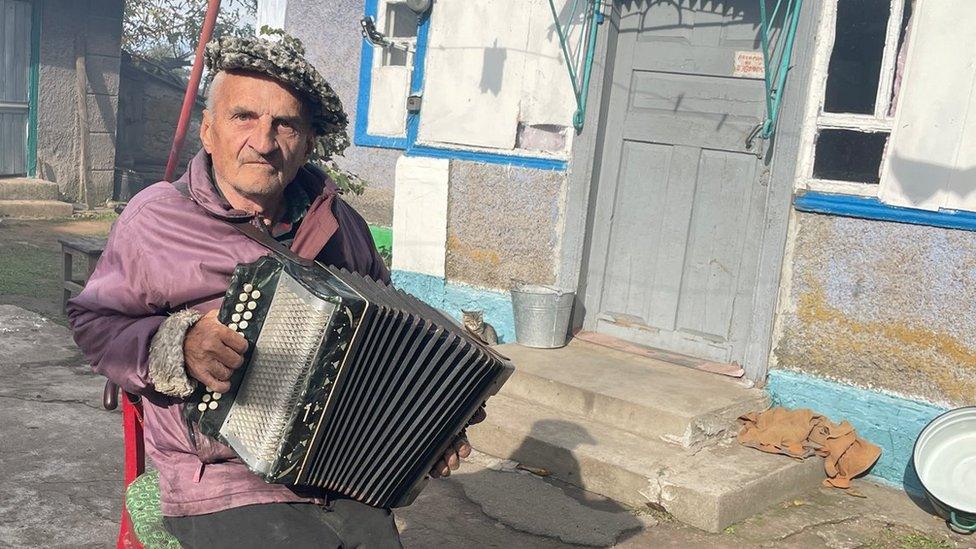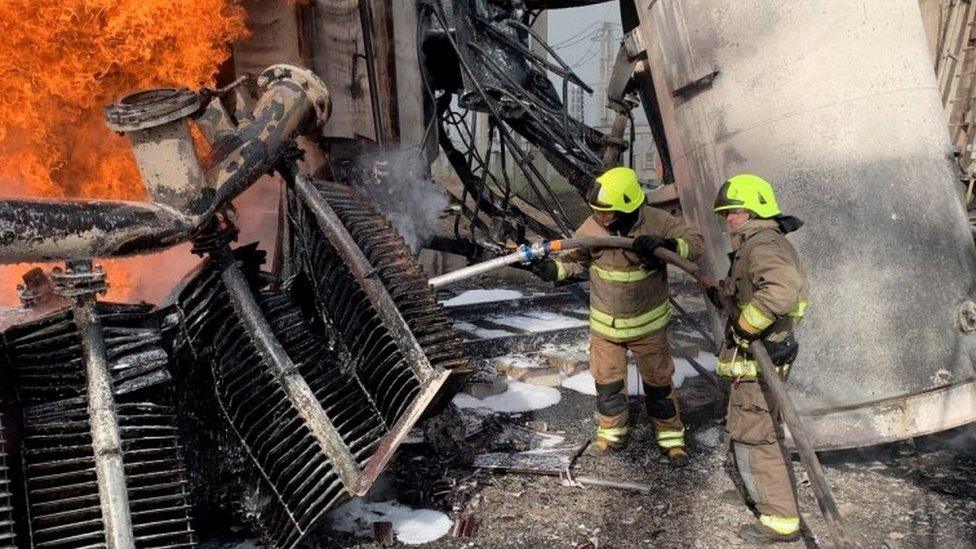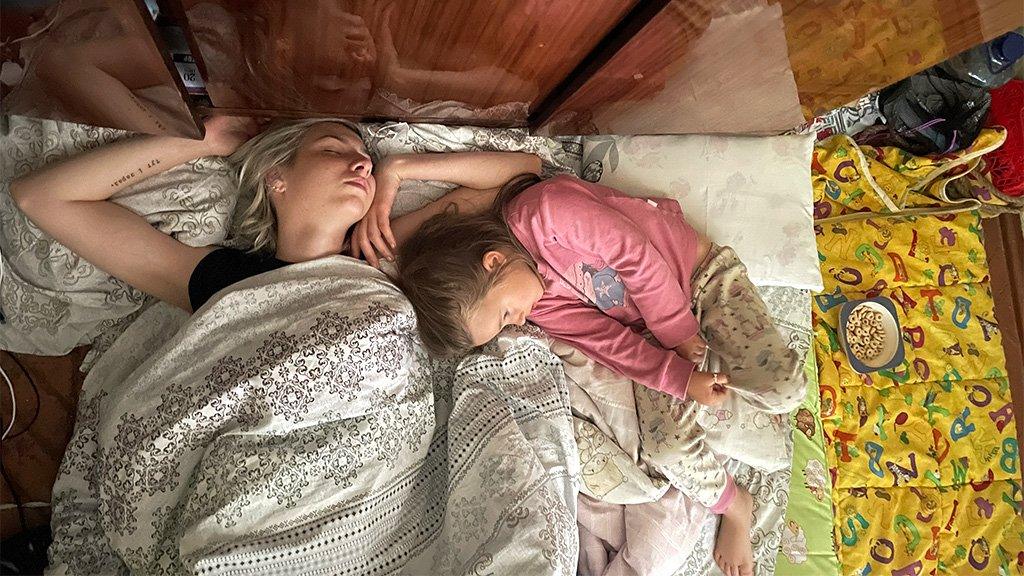Ukraine war: Russian spy chief blames West for nuclear tension
- Published
- comments
Watch: SVR chief Sergei Naryshkin speaks to the BBC's Steve Rosenberg
Western leaders have expressed concern about the scale of nuclear sabre-rattling over Ukraine by senior Russian officials, including President Putin, especially after February's invasion.
How does Moscow react to charges it is engaging in such rhetoric and threats?
I asked one of Russia's most powerful officials, Sergei Naryshkin, head of the SVR Foreign Intelligence Service, to respond to international criticism.
He denied any Russian nuclear rhetoric, even though there's been plenty.
Mr Naryshkin pointed the finger back at the West.
"Will you state categorically that Russia will not use nuclear weapons in Ukraine or engage in other provocative actions, such as exploding a dirty bomb, or blowing up a dam?" I asked Mr Naryshkin.
Russia's spy chief didn't answer the question directly. "We are, of course, very concerned about Western rhetoric about the possibility of using nuclear weapons," Sergei Naryshkin responded.
"Yesterday Russia's defence minister talked by phone with his colleagues from Turkey, the US and France. He told them about the possible plans of the Ukrainian leadership to use a so-called 'dirty nuclear bomb'," Mr Naryshkin continued.
"But there is no evidence to back up that claim," I pointed out.
On Sunday the UK, US and French governments issued a joint statement on the Russian government's claims. They rejected what they called "Russia's transparently false allegations" against Kyiv, adding: "The world would see through any attempt to use this allegation as a pretext for escalation. We further reject any pretext for escalation by Russia."
I was speaking to Sergei Naryshkin at the opening of an exhibition at the Russian Army Museum.
It is a sobering experience - an exhibition that transports you back to a time when the world was on the edge of nuclear Armageddon.
It marks the 60th anniversary of the Cuban Missile Crisis. On the wall there is a giant photograph of Soviet leader Nikita Khrushchev and US President John F Kennedy. There are images of the Soviet missiles Moscow sent to Cuba, and which the Kennedy White House demanded the Kremlin remove.
In the eyes of Vladimir Putin's Russia, what are the lessons of the Cuban Missile Crisis?
"The lesson of the Cuban Missile crisis is that political leaders must find the inner strength to reach compromises to resolve global problems," Sergei Naryshkin told me.
It's true that Kennedy and Khrushchev compromised to end a potentially devastating crisis. Khrushchev removed nuclear missiles from Cuba; Kennedy promised to remove American missiles from Turkey.
But six decades on, there is no sign that Russia's current leader, Vladimir Putin, is prepared to compromise. Once more there is concern about a possible nuclear conflict.
And yet the war in Ukraine is very different from the Cuban Missile Crisis.
Back in February the Kremlin leader invaded a neighbouring country, a sovereign state; the war has been raging for eight months. Despite major setbacks on the battlefield, President Putin still seems determined to secure some kind of victory, both over Ukraine and against the West.
- Published23 October 2022

- Published24 October 2022

- Published20 October 2022
